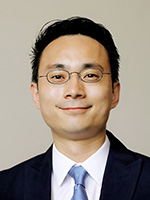A unified model of human hemoglobin switching through single-cell genome editing
Date: 2022/02/23 - 2022/02/23
Academic Seminar: A unified model of human hemoglobin switching through single-cell genome editing
Speaker: Dr. Yong Shen, Harvard Medical School
Time: 9:00 a.m.-10:00 a.m., Feb 23rd, 2022 (Beijing Time)
Location: via feishu
Abstract
The regulation of fetal hemoglobin (HbF) has been of substantial interest, both for its value to enable improved therapies to elevate HbF as a treatment in sickle cell disease and β-thalassemia, as well as for its broader implications as a paradigm for understanding the developmental control of gene expression. Key mechanisms of fetal hemoglobin (HbF) regulation and switching have been elucidated through studies of human genetic variation. However, there has not been a unified understanding of how these distinct genetically-nominated elements, as well as key transcription factors collectively interact to regulate HbF. Here, we describe a single-cell genome editing functional assay that enables specific mutations to be recapitulated individually and in combination, providing insights into how multiple mutation-harboring functional elements collectively contribute to HbF expression. In conjunction with quantitative modeling and chromatin capture analyses, we illustrate how these genetic findings enable a comprehensive understanding of how distinct regulatory mechanisms can synergistically modulate HbF expression.
Biography
 Dr. Yong Shen earned his PhD in Genetics & Genomics and MPH in Public Health Policy and Management from the University of Florida. He subsequently performed postdoc research at Dr. Vijay Sankaran Lab in the Division of Hematology/Oncology at Harvard Medical School. He has more than 15 publications within the fields of human genetics, molecular genetics and genomics, including Nature Communications, Molecular and Cellular Biology, PLOS Genetics and Molecular Therapy - Nucleic Acid etc.
Dr. Yong Shen earned his PhD in Genetics & Genomics and MPH in Public Health Policy and Management from the University of Florida. He subsequently performed postdoc research at Dr. Vijay Sankaran Lab in the Division of Hematology/Oncology at Harvard Medical School. He has more than 15 publications within the fields of human genetics, molecular genetics and genomics, including Nature Communications, Molecular and Cellular Biology, PLOS Genetics and Molecular Therapy - Nucleic Acid etc.
Dr. Shen’s PhD and postdoc work focused on the use of genome editing to study the regulatory mechanism of hemoglobin gene expression and the frontier exploration of gene therapy methods for deadly genetic diseases, such as sickle cell diseases and thalassemia. He integrated human genetics, genome editing, genomics, bioinformatics, biochemistry and molecular biology, and used human hematopoietic stem cells and myeloid leukemia cell lines as experimental systems, through the use of editable zinc finger DNA-binding proteins and CRISPR/Cas9 genome editing technologies to genetically manipulate of β-globin gene locus and related regulatory transcription factors, and ultimately reactivated functional fetal-stage hemoglobin which has become a novel treatment method for relieving or even curing inherited hemoglobin diseases.
